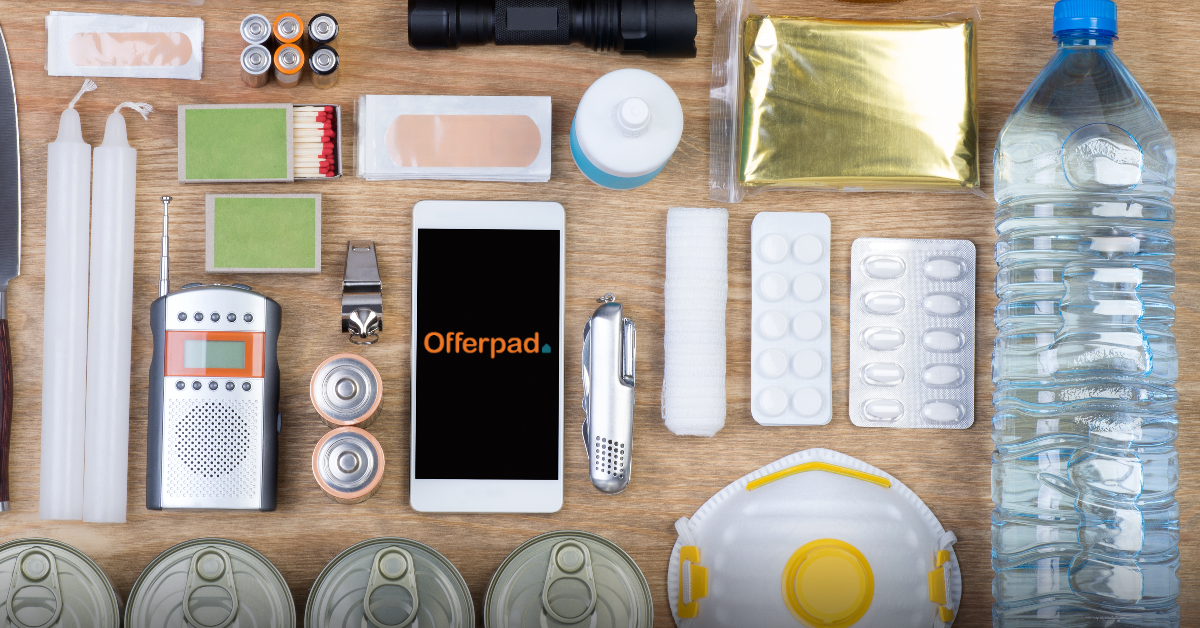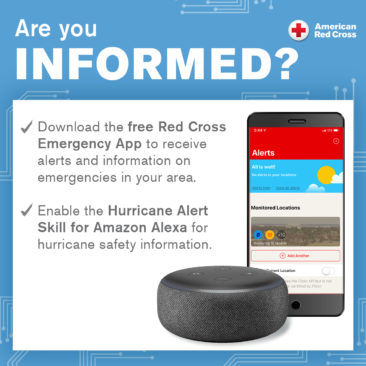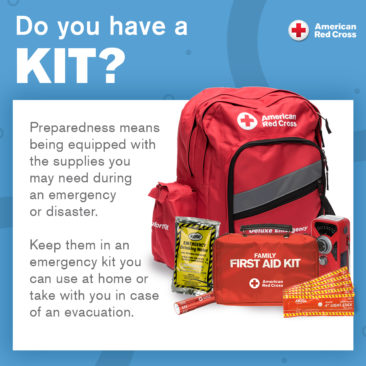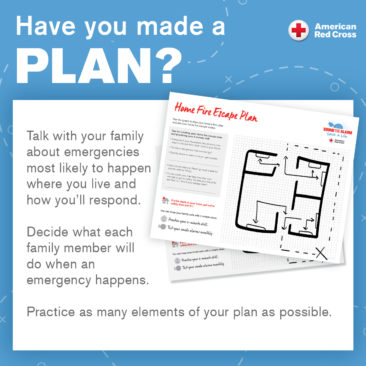
Ready or not: September is National Preparedness Month (NPM).
An annual observance issued by the Federal Emergency Management Agency (FEMA), this monthlong event is designed to highlight the importance of emergency planning now and throughout the year.
According to FEMA, the theme for 2019 is, “Prepared, Not Scared.” According to FEMA’s official website, here is a timeline of what’s being addressed during the days/weeks ahead …
- Week 1: September 1 – 7
- Save early for disaster costs
- Week 2: September 8 – 14
- Make a plan to prepare for disasters
- Week 3: September 15 – 21
- Teach youth to prepare for disasters
- Week 4: September 22 – 30
- Get involved in your community’s preparedness
No matter where ‘home’ is for you, it pays to have a plan in place to protect it from potential emergencies. So, grab your umbrella — in the spirit of National Preparedness Month, we’ll talk through some important considerations you’ll want to revisit when safeguarding your home, one of your biggest investments.
Stay informed
Awareness is key. While you can’t anticipate every emergency, you can stay on top of weather events and other hazards in real-time with many common devices. Download the Red Cross App and stay informed about potential events in your area. If you live in a hurricane zone, you can also program your smart home device to keep you looped in.

Keep an emergency kit
Do you have a home emergency kit? Whether you’re dealing with a blackout or a natural disaster, you’ll be relieved to have one at your disposal. According to Ready.gov, a good emergency kit should include the following items,
- Water (1 gallon per person per day)
- Non-perishable food (three-day supply per person)
- Battery-powered radio
- Flashlight
- First aid kit
- Batteries
- Whistle
- Dust mask
- Sanitation towelettes
- Basic tools (wrench, plier)
- Can opener
- Phone chargers
Depending on your situation, you may need additional supplies — consider things like baby formula, pet food, and prescription medication. There are many home emergency kits available on Amazon to suit many households.

Build your savings
According to the Federal Reserve, nearly 40% of Americans have less than $400 available in their savings — that’s not a lot of breathing room in the event of an emergency.
Stuff goes wrong when you own a home; appliances break, drains clog, roofs need to be replaced — it helps to have an emergency fund to lean on.
Building up your savings is possible on virtually any budget, but it requires serious financial discipline. Consider holding off on that $5 latte. Put the energy into making a meal plan for the week. Avoid dining out as often. The little things will start to add up once you set a budget and stick to a few basic ground rules.
Assess your insurance needs
Consider where you live — are you prone to a natural disaster like floods? Don’t find yourself without an active insurance policy when it’s too late. In addition to having an emergency savings account, the best way to recoup your potential losses is to ensure you have adequate insurance for your specific living situation. Devote some time to researching different policies, too — the money you might save in one area can help pad your savings.
Round up the important documents
The last thing you’ll want to do in the event of an emergency is round up important documents. Store things like your birth certificate, Social Security card(s), passport, and photo IDs in a safe place.
Have kids? Prep them
If you have children, the thought of them dealing with an emergency is a scary thought — what’s scarier is not knowing whether they’re prepared to handle a serious situation. Make sure your kids know what to do in the event of a fire, flood or another home emergency. Show them the location of fire extinguishers and how to operate them. If you have family or friends nearby, establish an emergency contact. A little prep work will give you both a lot of peace of mind.

We love homes
As people who love homes, we’re passionate about keeping them protected. For National Preparedness Month, take some time out to game plan for potential emergencies around the home and safeguard your investment.
Looking to buy your next home? Offerpad makes it easy, whether you’re a first-time buyer or moving to your next place. Check out our currently available homes or request an offer on your current home — we’re here to help!
The images throughout this post are courtesy of American Red Cross.

Leave a Reply